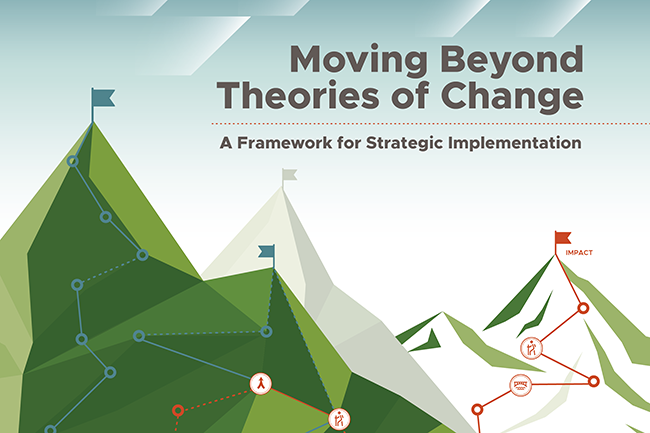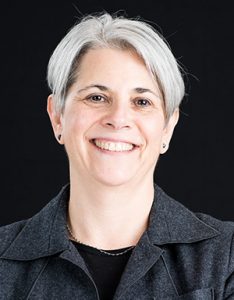New Report: Moving Beyond Theories of Change

Over the last 14 years, through more than 1,000 engagements across the country and around the world, Arabella Advisors has helped hundreds of clients go from inspiring philanthropic ideas to life-changing impact. Today, we’re proud to release a new report authored by Gwen Walden, one of our senior managing directors, that builds on that work as well as on Gwen’s 25 years of experience in the field.
Titled “Moving Beyond Theories of Change: A Framework for Strategic Implementation,” the report reflects on the current state of philanthropic practice and points to a gap that frequently exists between lofty philanthropic ideas on the one hand and their implementation outside the boardroom on the other. It then proposes a framework for crossing over this gap, one that involves focusing closely on the “People, Partners, and Platforms” that actually power social-impact efforts. As the report notes:
Long-term, systemic change requires a deep understanding of the complex logistics of impact—of when and how to move the human, financial, and even intellectual resources needed to accomplish the goal. It requires not only a strategy but a well-constructed plan for implementing that strategy, one that anticipates the likely necessity of adapting the implementation plan in response to realities on the ground.
As Gwen puts it elsewhere, “change takes more than a theory.” It takes an ongoing, strategic implementation effort. With that in mind, she provides insights into how today’s most innovative and effective philanthropists are dealing with the “complex logistics of impact,” moving beyond theories of change to implement effectively in full recognition of the importance of “the three Ps”: People, Partners, and Platforms.
 Building on the Arabella team’s ongoing work, Gwen examines diversity, equity, and inclusion (DEI) efforts as central both to advancing justice and to building stronger relationships through listening and empathy—and thereby connecting with the “People” who power change. She then draws on Arabella’s experience helping to facilitate dozens of donor collaboratives, exploring the increasing importance of deep partnership to achieving meaningful impact. Based on our work with fiscal intermediaries and impact investors, she also charts the emergence of a new type of “platform agnostic” philanthropy, driven by donors who seek to advance change through a variety of legal entities or “platforms,” including limited liability corporations (LLCs), donor advised funds (DAFs), social welfare organizations (501c4s), and more, in addition to traditional grant-making foundations.
Building on the Arabella team’s ongoing work, Gwen examines diversity, equity, and inclusion (DEI) efforts as central both to advancing justice and to building stronger relationships through listening and empathy—and thereby connecting with the “People” who power change. She then draws on Arabella’s experience helping to facilitate dozens of donor collaboratives, exploring the increasing importance of deep partnership to achieving meaningful impact. Based on our work with fiscal intermediaries and impact investors, she also charts the emergence of a new type of “platform agnostic” philanthropy, driven by donors who seek to advance change through a variety of legal entities or “platforms,” including limited liability corporations (LLCs), donor advised funds (DAFs), social welfare organizations (501c4s), and more, in addition to traditional grant-making foundations.
The point, in the end, is that today’s foundations and donors have more potential routes to impact than philanthropy once imagined. Partly as an effect of that increased optionality, they are more likely to reach their impact goals when they plan thoroughly for implementation—thinking carefully about the relationships between and among the people, partners, and platforms that move social-impact efforts forward—and then invest time and resources accordingly. The 3Ps framework provides a means to better understand, support, and work through those relationships, and so move beyond a theory of change and actually make the journey from idea to impact.
